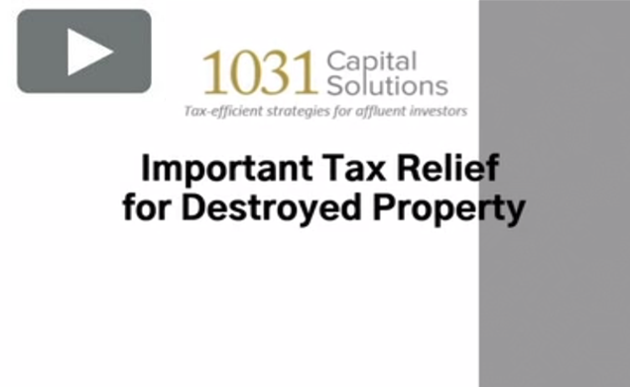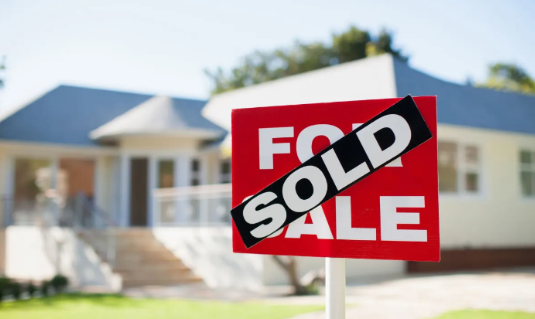
Important Tax Relief for Destroyed Property
For most investment property owners, conducting a §1031 exchange is a voluntary endeavor. They choose to sell an appreciated property and elect an exchange, to defer taxes on capital gains they otherwise would recognize upon sale.
However, some folks are forced to realize capital gains on their investment real estate. Specifically, they may receive taxable insurance proceeds when a building is destroyed in a fire, or they may receive proceeds from the government in an eminent domain acquisition or condemnation.
Collectively, these circumstances are known as “involuntary conversions”.
For example, suppose you bought a property for $250k in 1990, and it was destroyed in 2020. The original value of the improvements was $100k, which you subsequently depreciated down to $0.00. Your total adjusted cost basis in the property is now $150k.
A few months after the fire, your insurance company sends you a check for $500k, the current replacement value of the structure. Of course, you could opt to spend the money to rebuild. On the other hand, you may decide to simply put the money in the bank. In the latter option, to the extent that your $500k check exceeds the cost basis of the structure—in this case, zero dollars—you would pay tax on the entire insurance proceeds!
Enter the §1033 exchange, which allows you to acquire property that is “similar or related in service and use” to your destroyed property. Combined with a sale and exchange of the land, you could end up owning an entirely different property, perhaps in another state, while deferring your federal capital gains taxes altogether. In our example, if you sold the land for $300k net, you could reinvest the total $800k and defer taxes on $650k of capital gains.
§1033 exchanges do have different “like-kind” requirements than §1031, but the timelines are far less onerous. For some property owners, §1033 exchanges represent a small silver lining in the dark cloud of fire destruction that has ravaged the West Coast in recent months. If you or a client recently lost investment property to fire or flood damage, or have been the target of a government taking, please give 1031 Capital Solutions a call today. Thank you.
Numerical examples are for illustration purposes only; individual circumstances will vary.
This information is for educational purposes only and does not constitute direct investment advice or a direct offer to buy or sell an investment, and is not to be interpreted as tax or legal advice. Please speak with your own tax and legal advisors for advice/guidance regarding your particular situation. Because investor situations and objectives vary, this information is not intended to indicate suitability for any particular investor. The views of this material are those solely of the author and do not necessarily represent the views of their affiliates.
Investing in real estate and 1031 exchange replacement properties may involve significant risks. These risks include, but are not limited to, lack of liquidity, limited transferability, conflicts of interest, loss of entire investment principal, declining market values, tenant vacancies, and real estate fluctuations based upon a number of factors, which may include changes in interest rates, laws, operating expenses, insurance costs and tenant turnover. Investors should also understand all fees associated with a particular investment and how those fees could affect the overall performance of the investment.
Securities offered through Concorde Investment Services, LLC (CIS), member FINRA/SIPC. Advisory services offered through Concorde Asset Management, LLC (CAM), an SEC registered investment adviser. Insurance products offered through Concorde Insurance Agency, Inc. (CIA). 1031 Capital Solutions is independent of CIS, CAM and CIA.
continue reading
Related Posts
Changes are Happening Quickly – Don’t be Left Behind Managing […]
The Burdens of Managing Rental Property in Retirement Retirement should […]











